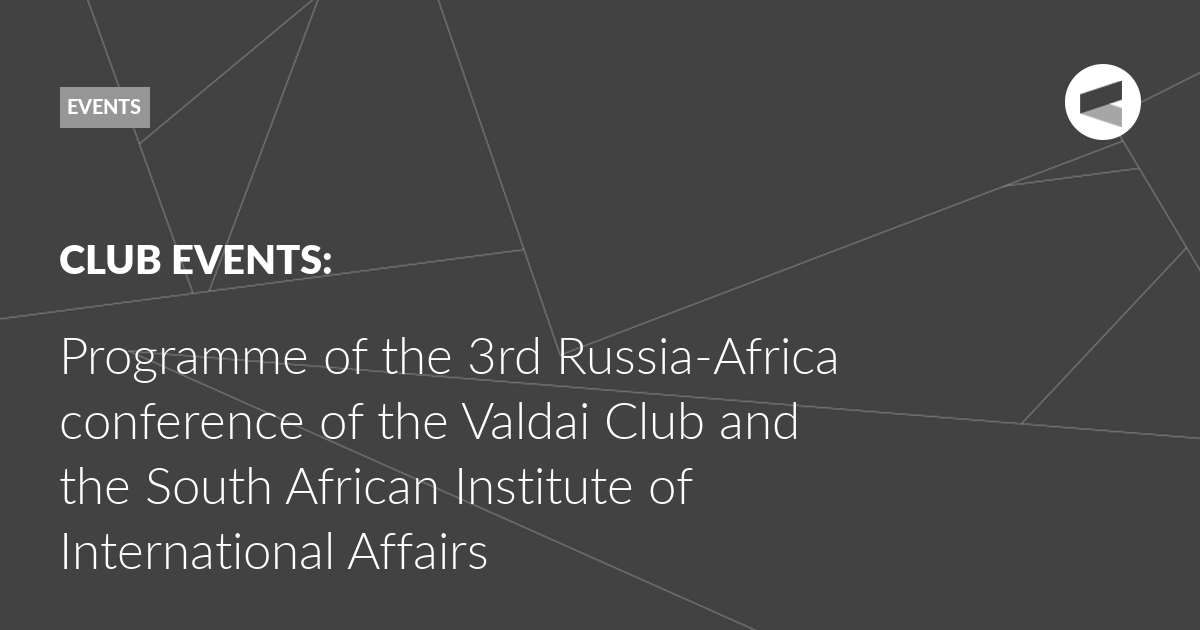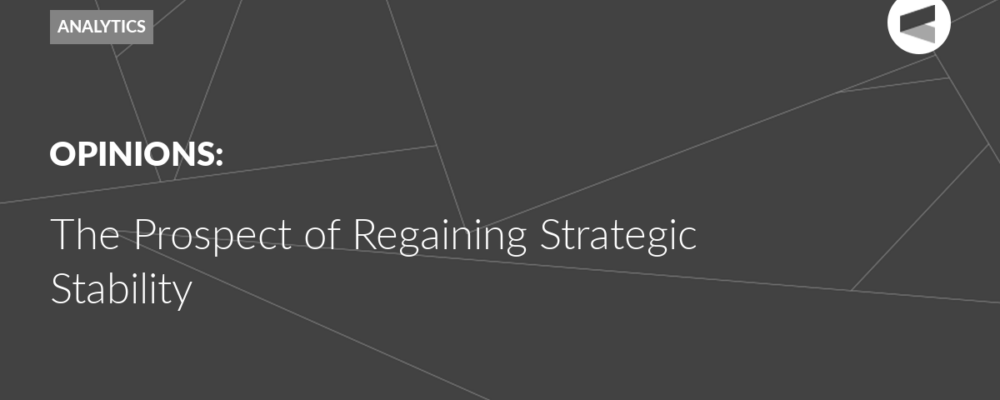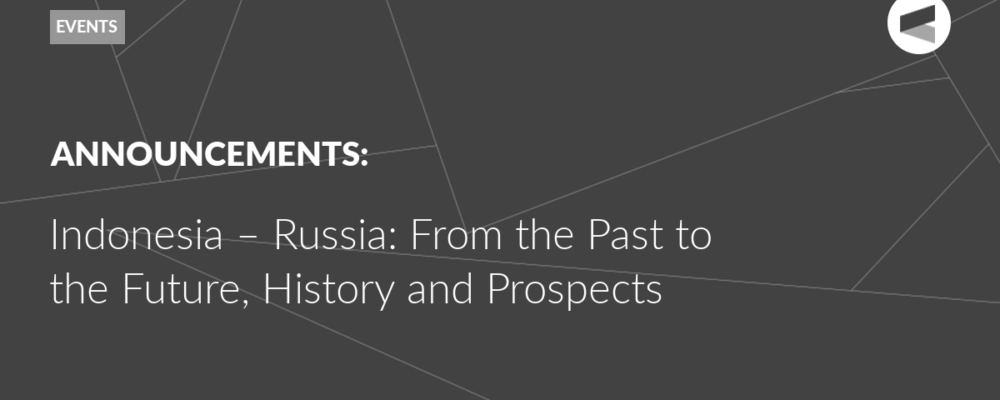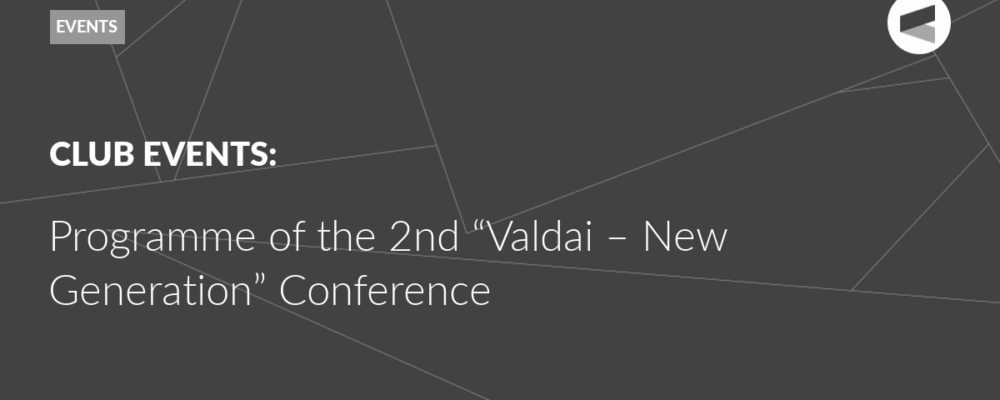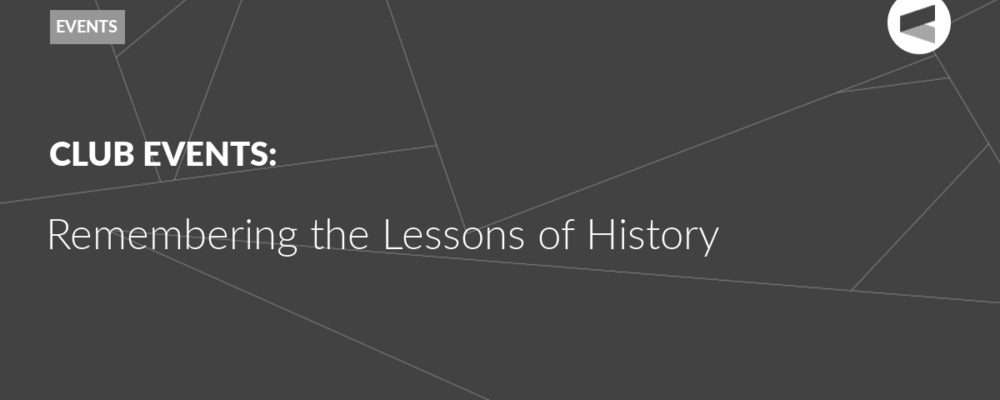On July 28, in Pretoria, South Africa, the Valdai Discussion Club in partnership with the South African Institute of International Affairs (SAIIA) will hold the 3rd Russian-African Conference titled: “Realpolitik in a Divided World: Rethinking Russia-South Africa Ties in a Global and African Context”.
Programme of the 3rd Russia-Africa conference of the Valdai Discussion Club and the South African Institute of International Affairs “Realpolitik Responses in a Fractured World: Rethinking Russia-South Africa Ties in Global and African Context”
Pretoria, July 28, 2025
Attention! The time specified in the programme is local
July 28, Monday
09:00 – 09:30 Opening (live: English)
09:30 – 11:30 Session 1. G20 and BRICS: Assessing Strategic Roles in an Evolving Global Order (live: English)
In recent years, the BRICS grouping has attracted considerable interest from the Global South and other non-Western states, which view membership or partnership as a means of advancing their development and foreign policy priorities. This trend was exemplified at the 2023 BRICS Summit in South Africa, where new members, such as Egypt and Ethiopia, were welcomed, and further reinforced at the 2024 Summit in Russia, which introduced a partner category that included countries like Uganda and Nigeria. Simultaneously, the G20 remains a crucial forum for dialogue among a diverse range of major Western and emerging economies from the Global South. With South Africa chairing the G20 in 2025, there is a unique opportunity to recalibrate global debate towards practical development strategies and enhanced economic inclusivity. This session aims to critically examine these emerging dynamics and explore how both the BRICS and G20 platforms can be leveraged to promote sustainable, inclusive growth for the Global South.
Key questions for discussion include:
-
What are the key priorities and actionable measures emerging from South Africa’s G20 presidency?
-
What outcomes have materialised from Russia’s BRICS chairmanship in 2024, and what implications do they hold?
-
What are the prevailing expectations regarding the impact of G20 and BRICS activities in South Africa and Russia?
-
How can the G20 and BRICS forums be further adapted to more effectively reflect the interests and developmental needs of Africa and the Global South?
12:00 – 13:30 Session 2. Humanitarian Cooperation and the Role of Historical Memory in Russia’s Relations With South Africa and Other African Countries (live: English)
Cultural, educational, scientific, and humanitarian collaboration remains a vital aspect of engagement between Russia and African nations, including South Africa. These initiatives aim to foster people-to-people interactions and deepen mutual understanding. In recent years, humanitarian cooperation has increasingly drawn on the historical memory of the Soviet Union’s support for African states and its role in the fight against apartheid. This session will examine the degree to which the historical legacy informs the current humanitarian agenda in Russia-Africa relations, explore approaches to assessing current cooperation initiatives, and consider the challenges and opportunities within these approaches.
Key questions for discussion include:
-
What are the main humanitarian and cultural initiatives that Russia has pursued in South Africa and across Africa?
-
How are these initiatives being received by local actors and policymakers, and what tangible impacts have they achieved?
-
In what ways does the shared historical legacy—particularly the Soviet Union’s support for African liberation—continue to shape these humanitarian efforts?
-
How do African actors shape and articulate the humanitarian cooperation priorities in their engagement with Russia, and how are these locally driven perspectives integrated into the broader framework of Russia-Africa initiatives?
14:30 – 16:00 Session 3. Bilateral Relations Between Russia and South Africa: Current State and Prospects
The bilateral relationship between Russia and South Africa has long been a topic of intense debate, with both nations engaging through forums such as BRICS, the G20, and the Russia-Africa Partnership Forum. Although constructive dialogue and cooperation have been established, the shifting global geopolitical landscape, coupled with significant domestic changes in each country, continues to pose complex challenges. This session aims to critically assess the evolution of Russia–South Africa relations by taking stock of past initiatives, analysing current challenges driven by global geopolitical shifts and domestic developments, and exploring pragmatic strategies to foster a resilient and mutually beneficial partnership that aligns with Africa’s development priorities and the broader Global South agenda. Key questions for discussion include:
-
What lessons can be drawn from past initiatives in Russia–South Africa relations to inform our understanding of the current engagement dynamic?
-
In what ways are global geopolitical shifts and domestic developments shaping the challenges faced by the bilateral relationship?
-
What pragmatic strategies can be adopted to strengthen the resilience of Russia–South Africa cooperation, ensuring that it effectively supports Africa’s development priorities and the broader Global South agenda?
16:30 – 18:00 Session 4. Trump and the World Order
Recent developments in US foreign policy under President Donald Trump have marked a notable departure from traditional American approaches to international affairs. This shift is evident in structural reforms within the US foreign policy system and in the revised stance towards traditional allies, with a focus on transactionally driven interests rather than ideological commitments. Measures such as the increasingly strained relations with South Africa and mixed signals regarding Russia have sparked debate over whether these policies signal a fundamental change in the established international order or reflect a temporary realignment in response to emerging global challenges. The recent rapprochement between Presidents Trump and Putin is particularly noteworthy, particularly in terms of its potential impact on the conflict in Ukraine.
This session aims to assess how the new US policy direction might shape global politics in the medium term and to explore how Russia and African countries can strategically engage with these evolving dynamics while safeguarding their own national interests.
Key questions for discussion include:
-
What are the implications of the reoriented US foreign policy for the established international order?
-
How might these policy measures—such as strained relations and ambiguous signals towards Russia—affect the medium-term trajectory of global politics?
-
How should Russia and African countries respond to and engage with this evolving US stance to protect and advance their strategic and developmental priorities?
The Valdai Discussion Club was established in 2004. It is named after Lake Valdai, which is located close to Veliky Novgorod, where the Club’s first meeting took place.
Please visit the firm link to site


